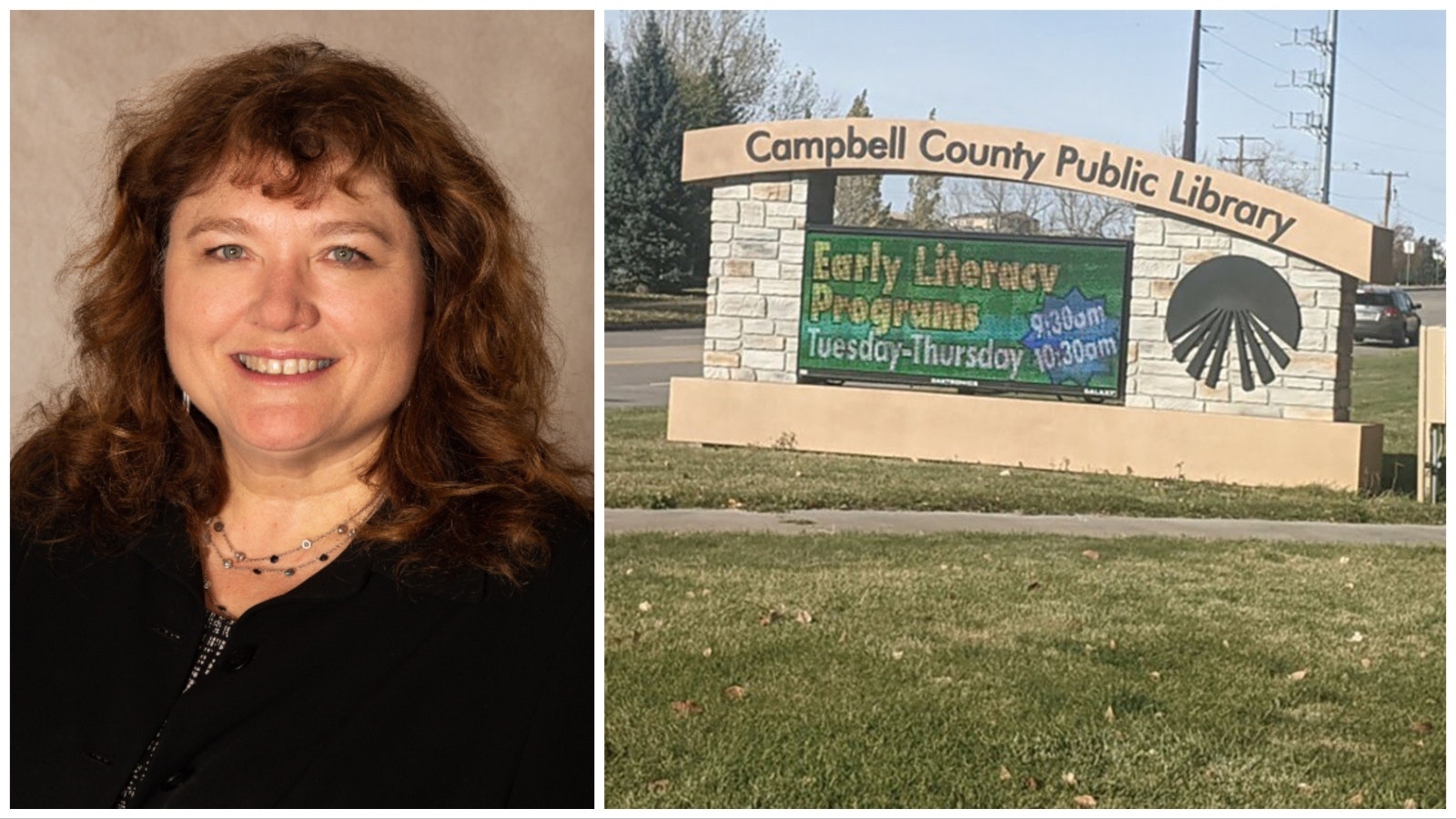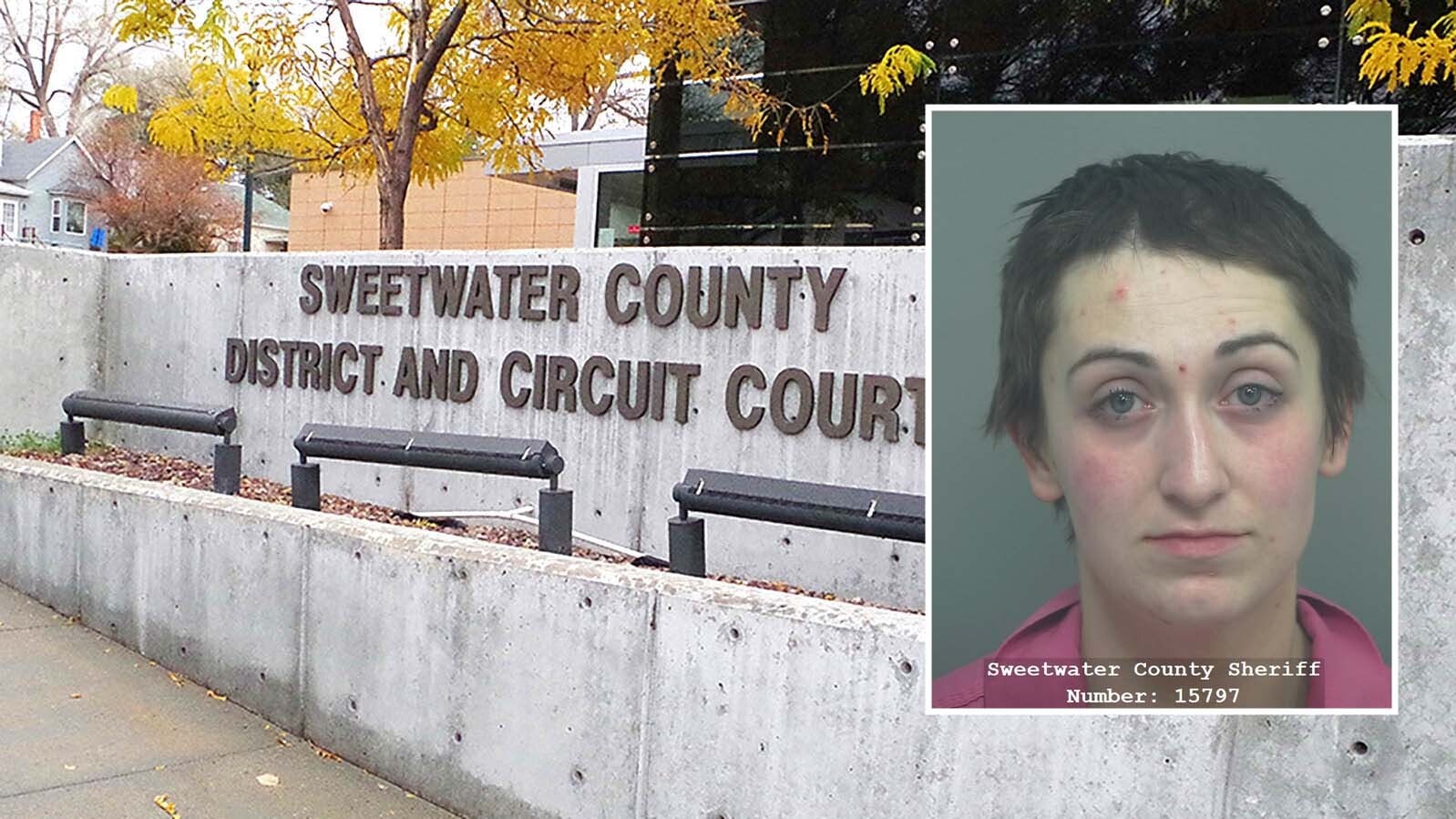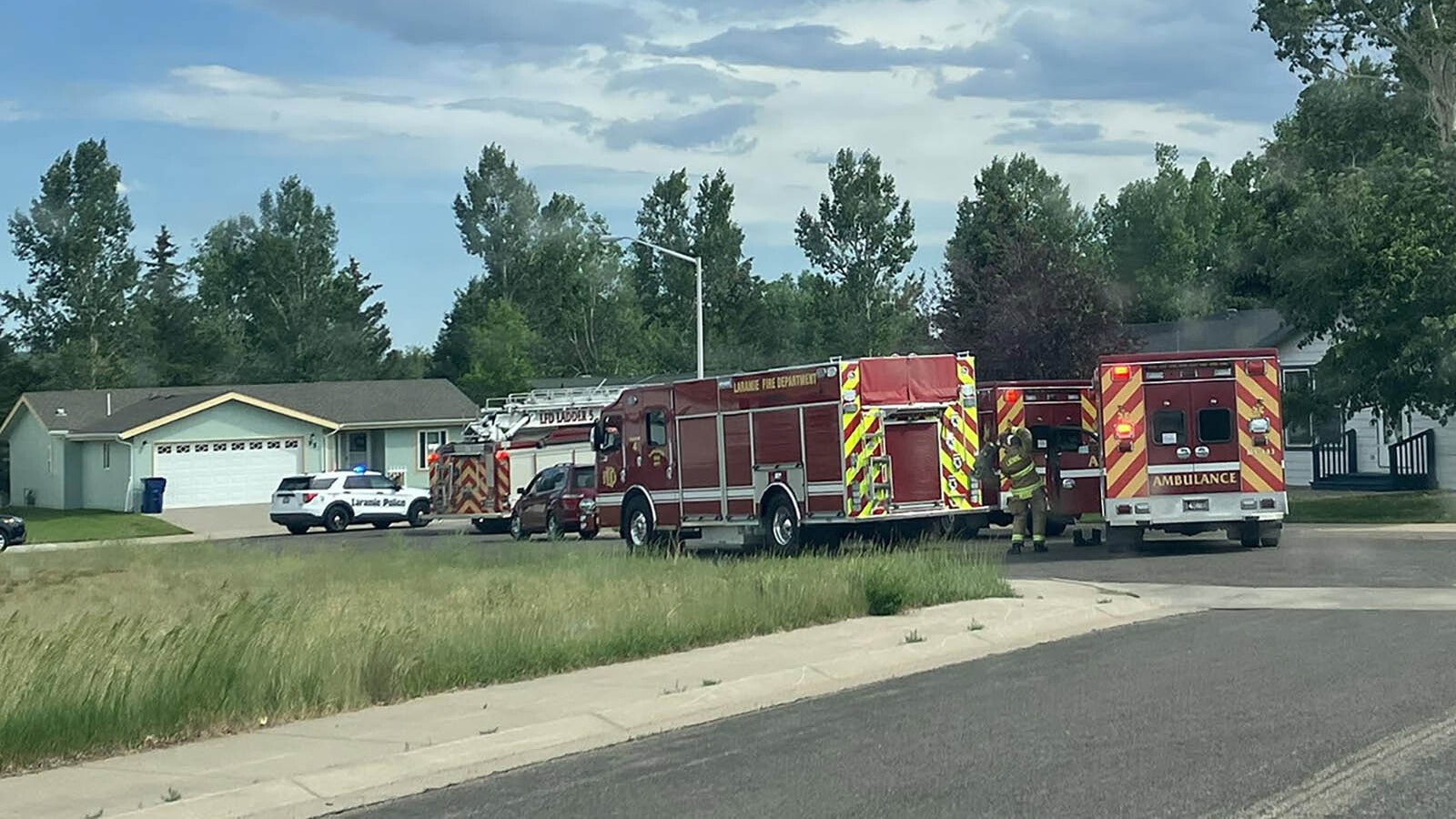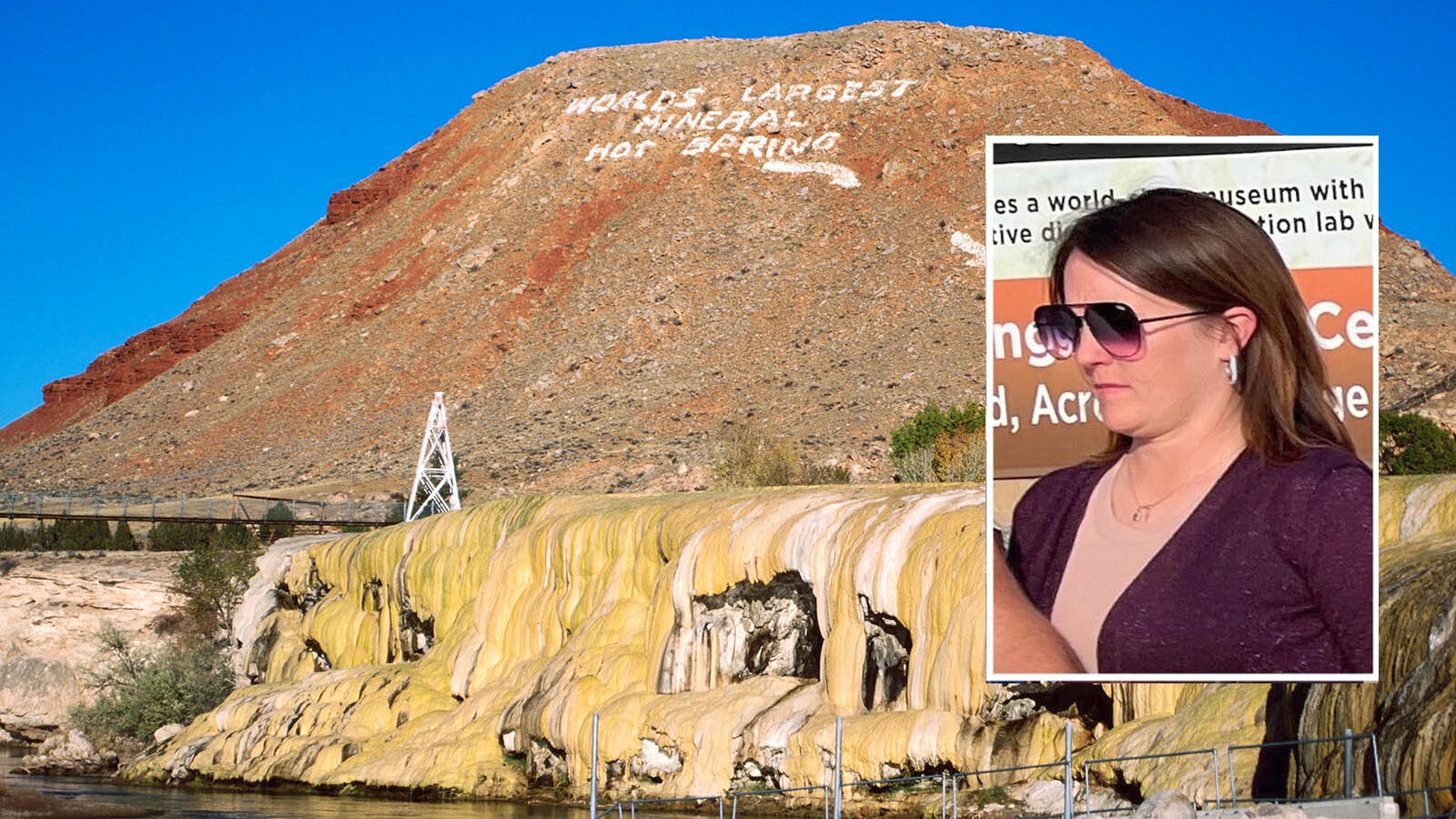Citing the First Amendment, three Campbell County family members who complained for months against sexually graphic children’s books in the public library are asking a federal court to dismiss the former library director’s defamation lawsuit against them.
Hugh and Susan Bennett and their adult son Kevin on Monday filed their motion to dismiss the September 2023 lawsuit by Terri Lesley, the former Campbell County Public Library director.
The library board fired Lesley in July 2023, after she refused to remove controversial books from the children’s section of the Gillette library.
“Ultimately, Ms. Lesley was terminated by the government officials that controlled her job – not Defendants – for her failure to perform in the role as they wished her to perform,” says the Bennetts’ filing in the U.S. District Court for Wyoming. “In retaliation for Defendants’ exercising their First Amendment rights, Ms. Lesley has filed this lawsuit against Defendants attempting to lay the blame for the results of her actions at Defendants’ feet.”
The Sex Books Saga
Lesley’s lawsuit stemmed from several months of controversy in Campbell County.
Lesley defended the inclusion of controversial books in the library’s children and teen sections. Some in the community — including the Bennetts — said the books were sexually explicit and inappropriate for children. They included such titles as “This Book is Gay” by Juno Dawson, “How Do You Make A Baby” by Anna Fiske and “Sex is a Funny Word” by Cory Silverberg.
The Bennetts spoke out against the books and Lesley’s actions at Campbell County Commission meetings and elsewhere.
Then Hugh and Susan Bennett reportedly filed a criminal complaint against Lesley so that a prosecutor had to review the books in question and decide if Lesley had provided obscene materials to children. The prosecutor decided the books were not criminally obscene. But even if they had been, Wyoming exempts librarians and educators from being charged criminally for promoting obscenity to minors or adults.
A handful of Wyoming lawmakers tried to remove that exemption from state law last year, but they failed.
Lesley sued the Bennetts for alleged defamation and other claims about two months after her firing.
Rough Overview Of This Defense
The Bennetts’ motion says Lesley has failed to demonstrate any defamation because it’s harder for public figures to sue people for defamation under civil law.
The filing also claims Lesley raised her defamation claims after the statute of limitations ran out, failed to establish that she occupies a special class under the federal discrimination claim she brought, and failed to show that the Bennetts abused the legal process when reporting her to the Campbell County Sheriff.
The filing also claims the Bennetts’ complaints against Lesley and the books in the children’s section were protected under the First Amendment.
Librarian's Lawsuit Says …
Lesley brought six civil claims in her lawsuit, as follows:
- That the Bennetts marginalized LGBTQ people or their allies and therefore violated the federal Ku Klux Klan Act,
- That the Bennetts conspired to deny the LGBTQ community “equal privileges and immunities of citizenship,”
- That Hugh and Susan Bennett defamed Lesley by reporting her to the Campbell County Sheriff’s Office,
- That the Bennetts defamed Lesley by accusing her of committing crimes and propagating pornography,
- That the Bennetts inflicted emotional distress on Lesley with a barrage of toxic and threatening statements,
- That the Bennetts abused the legal process by reporting Lesley to the sheriff’s office.
First Up, The KKK
Firstly, the Bennetts argue that Lesley doesn’t have a case against them under the Ku Klux Klan Act because she’s failed, allegedly, to show that she was mistreated based on racial or social class.
Lesley cited an episode in which the Bennetts opposed the library hosting a transgender magician and the act was cancelled.
Courts have held that a person suing under the statute in question, 42 USC 1985(3), must show that they were injured by multiple people who had race- or class-based discriminatory animus, the filing says.
Congress intended that statute to protect people from the KKK’s “violent efforts” to deprive people of their rights, so courts have been reluctant to expand the statute to protect people on class designations other than race, the filing adds.
Lesley’s complaint says she’s associated with the LGBTQ+ community and its allies.
The Bennetts argue in their filing that such associations aren’t enough to safeguard Lesley as a member of a protected class under the KKK Act.
Civil Conspiracy
The Bennetts’ filing says Lesley failed to show they conspired to deprive protected people of rights.
Lesley’s complaint accuses the Bennetts of denying the LGBTQ community “the equal privileges and immunities of citizenship” by railing against the controversial books in the library.
Many of the graphic books involved in the Campbell County library controversies either revolve around or reference LGBTQ themes.
Lesley has failed to identify a right the Bennetts stripped from LGBTQ people, the Bennetts’ filing alleges.
Perhaps Lesley was referencing the equal protection right in the 14th Amendment to the U.S. Constitution, the filing continues. If so, Lesley is suing the wrong people, the Bennetts claim:
“The Fourteenth Amendment … is not applicable to non-State actors,” says the filing.
One Year For Defamation
One of Lesley’s defamation claims is against Hugh and Susan Bennett; the other is against all three Bennetts.
Both are past their deadline for filing a lawsuit under Wyoming law, the Bennetts’ filing says.
The Bennett parents allegedly filed a criminal complaint against Lesley on Sept. 29, 2021. Lesley would have had to file a lawsuit on that claim by the same date in 2022, says the filing.
The other defamation claim against all Bennetts would have expired June 20, 2023, one year after the last of the fiery statements Lesley’s complaint attributes to the Bennetts.
Public Figures Have It Rougher
Since 1964, it’s been harder for a public figure to sue someone for defamation. The U.S. Supreme Court ruled that year in New York Times v. Sullivan that a public figure can’t sue people for defamation unless she can show the defendants knew their maligning claims were false when they made them. It’s a standard called “actual malice.”
When Hugh and Susan Bennett reported Lesley to the Campbell County sheriff on suspicion of disseminating obscenity to children, “there was a complete absence of actual malice,” says the filing, adding that the sheriff turned the inquiry over to a prosecutor, and even the prosecutor had to conduct legal research to find that Lesley hadn’t given children obscene materials under Wyoming’s law and community standards.
Because, Free Speech
The Bennetts’ filing says the First Amendment negates the defamation claims Lesley made against all three of them for allegedly railing publicly against the books and her library management.
“(Lesley) is essentially taking issue with Defendants exercising their First Amendment rights to speak on matters of public concern and to petition their government to address their concerns,” says the filing. “Should this Corut permit this claim to proceed, it would have a substantial chilling effect as ordinary citizens would be fearful of speaking in public on important publish issues lest they be hauled into federal court and face civil liability.”
The filing grapples with disputes in Lesley’s claims, such as whether the Bennetts accused her of child abuse.
The filing says Lesley failed to show this, and glossed over the fact that Susan Bennett, rather, voiced concerns that the graphic books were harmful to children who have suffered abuse.
Secondly, Lesley doesn’t show how the Bennetts allegedly accused her of “pornography,” the filing claims, adding that Lesley confused the definitions of “pornography” and criminal obscenity.
The Bennetts did, however, call the contested books pornographic, which the filing says is merely their opinion based on the books’ sexually graphic nature.
Lesley anticipated the Bennetts' First-Amendment defense. A footnote in her original complaint notes the First Amendment does not protect "tortious conduct." It alleges the Bennetts engaged in tortious conduct to "silence, intimidate, and harm those with differing views or identities."
Emotional Distress
The Bennetts claim they aren’t liable for causing Lesley emotional distress as she alleges. They cite a high legal standard for proving that claim.
Lesley must show the Bennetts deployed “extreme and outrageous conduct” going “beyond all possible bounds of decency, and to be regarded as atrocious, and utterly intolerable in a civilized community,” the filing argues, quoting from a 2003 Wyoming Supreme Court case.
Lesley has not shown such conduct, the Bennetts claim in their filing.
Here, the Bennetts argue that Lesley’s reported status as a public figure interferes with her claim and that she’d have to prove the “actual malice” standard under this claim as well as the defamation claims.
Abuse Of Process, And Deadlines Again
Lastly, the Bennetts say they can’t be liable for abuse of process for trying to get Lesley charged criminally because the prosecutor never actually charged her.
They also claim the abuse-of-process claim, like the defamation claims, was under a one-year deadline. Lesley would have had to sue by Sept. 29, 2022.
Clair McFarland can be reached at clair@cowboystatedaily.com.





